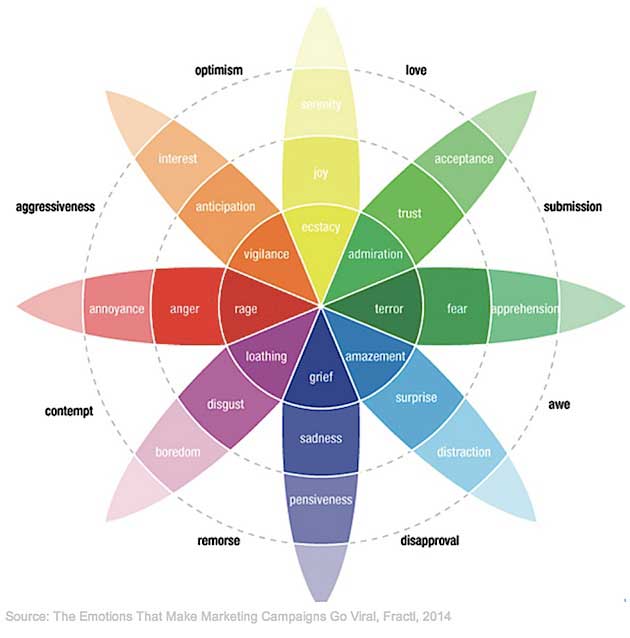Games eliciting emotional responses
-
This made me feel stuff: http://ludomancy.com/today/index.html
-
You played through the whole thing without any liking for the characters? Why would you do that!? For me, it's essentially a teen TV show with characters to go with that. And it does that well. Not for everyone, certainly, but it hit notes with me.Skondo wrote:Have to disagree with tiger. Didn't find Life is Strange emotional at all, but maybe that's because I didn't like the characters. Max was okay, if a little whiney, but the girl with the blue hair was horrendous. Standard teenage angst with additional whining, but she's really cool or pretends to be and she doesn't really have close friends and oh being a teenager is so difficult. Fuck off and write a better character. Hmmmm....it appears that Life is Strange elicits an angry response from me.
More down to the directorial side than the depth of the characters though. But hey - I like blue haired wannabe punk-rock kids and nerds who read Ray Bradbury and play guitar and chill in their room listening to twingy-twangy music. -
I play through - and watch - loads of stuff where I don't like the characters. I've never understood people who won't watch/play something because they don't like characters. Fuck, in some things, not liking the characters is the point.
-
Hmm, I suppose.
Perhaps I mean 'any engagement' with the characters. Which is more important, particularly in a narrative driven game. -
Engagement with media is bigger than with the characters, though. Could be the narrative interests you, or you like the themes and aesthetic.
-
I played to the end because I was intrigued by the story and wanted to know what would happen. The ending was nearly as badly written as Chloe. Garbage.
I have played through three Gears games and every single character is a twat. -
I liked the ending and found it a genuinely difficult decision.
-
Neither are as important as the characters in a narrative, for my money, though there are examples, sure.AJ wrote:Engagement with media is bigger than with the characters, though. Could be the narrative interests you, or you like the themes and aesthetic.
Core driver for Gears is the gameplay loop (hide 'n' shoot). Life is Strange isn't driven by mechanics. Very different.
Anywho, different strokes. Ending worked very well for me (the very ending, mind. Final episode was nae great). -
Different Strokes didn't make me cry.
Although finding out Willis was forced to act in an episode about the dangers of nonces while being nonced up by some producer was pretty tragic. -
Oh, quite. I just don't understand people who discount something simply because they don't like the characters, that's all.
@tiger, obvs. -
dynamiteReady wrote:Thought this was pretty interesting:
 Robert Plutchik's wheel of emotion is pretty stoic, but as a simple quantification it's close to inarguable. With this illustration in mind, it's fair to say that the games we enjoy are certainly capable of directly eliciting awe, aggression, contempt and possibly optimism, but some of those other ideas... Particularly the likes of sadness, disapproval, love and acceptance, are very rarely even targeted... Let alone successfully triggered. Did anyone ever really cry at Aeris' death?
Robert Plutchik's wheel of emotion is pretty stoic, but as a simple quantification it's close to inarguable. With this illustration in mind, it's fair to say that the games we enjoy are certainly capable of directly eliciting awe, aggression, contempt and possibly optimism, but some of those other ideas... Particularly the likes of sadness, disapproval, love and acceptance, are very rarely even targeted... Let alone successfully triggered. Did anyone ever really cry at Aeris' death?
I dont think its a complete picture by any stretch but it is handy to have a sense of categorisation.
I read something not long ago (name and topic eludes me) where you can have something like an emotional state, and within that state a range of moods are more likely.
The heirarchy is something like state -> mood -> emotion
If you are in a more positive state you can still be in a grumpy mood and have a full range of emotions, for example. An emotion is short term, a mood is something that might last hours or days, and the overall state (affective emotional state might be the term?) is something that generally persists over very long timescales. Maybe it is akin to a term like disposition?
So a game would be capable of eliciting short term emotions like anger, happiness, fear etc, but to actually have some form of deeper resonance with the audience, the audience member might need to be in a more receptive mood or overall state."Sometimes it's better to light a flamethrower than curse the darkness." ― Terry Pratchett -
Kow wrote:It would be hard for games to have an emotional impact in between mashing buttons and qtes. As well as that you need some kind of character development and quality acting, neither of which games have. They just don't have the writers or the actors to do it, and even if they did then they'd just be imitating films and could only come out worse in comparison.
This has probably already been covered but I think it's an interesting point.
When we think about eliciting emotions- specifically, in this case, sadness - we often get bogged down in matters of performance. It's true that a lot of game writing and performance is not up to much, and indeed the same is true of a lot of film and books.
But games have one intrinsic advantage that the other forms of media cannot, for one second, hope to emulate - agency.
The director of a film can frame a shot or telegraph a performance to imply guilt on the part of the viewer - for example, Funny Games - or leave one shot going for an uncomfortably long amount of time - Irreversible. They can even involve the viewer thematically as in Shortbus, where a key theme of the movie is that voyeurism is participation, thereby pulling the audience into the movie.
And yet the audience can never do anything beyond what is presented to them.
I actually think that games can elicit certain emotions better than other media because of this. Guilt, because the action is your own. Anger, because someone is trying to hurt your friend. Fear because the monster is trying to find you. I have felt possessive and protective of characters in films and TV, of course, but never as much as I have for Trico, Nanako, Elle and the rest.
Games have their flaws, aye, but they also have an unemulatable strength. And that is what can helps them deliver emotions as powerful, if not more so, than anything else. -
Graph my emotions.
New album coming 2017. -
Is it really agency when there is no other option?
Looking at two games in particular, one which I have played, the other I have not.
MGS3 asks you to finish the mission with a single press of the square button. The other game is that Spec Ops game where you are told off for killing digital enemies. The latter example really doesn't sit well with me and comes off as preachy - was the right moral choice not playing or even not buying the game? I don't think that carries quite as much weight as it thinks it does.
Now, another game I haven't played is Nier. Going again by what I've read, that game comes with a very cool twist that comes right at the end and maybe that comes close to holding some form of significance. Almost like Links Awakening.
I'm not playing the right games. I need to play those two post-haste to see if I'm right."Sometimes it's better to light a flamethrower than curse the darkness." ― Terry Pratchett -
Yeah, that's a legit issue. For me, I think it very much comes down to implementation. I get that some people were turned off by Spec Ops, but there are some other ones that I think really work.
Shadow of the Colossus doesn't tell you what you're doing is bad, or wrong. It slowly reveals that your actions are having an effect of your physical appearance and asks you to connect the dots. It relies on the player knowing what they are doing may not be right, coupled with the slaughter of the colossi, and yet ploughing on regardless.
Bioshock tackles the agency issue head on and couldn't be done in any other form. I'm not a big fan of the game, but the way it handled agency and control was very smart indeed. -
I really didnt gel with Bioshock. The reveal towards the end reminded me too much of the Master Miller/Clark Kent glasses reveal in Metal Gear Solid, so the impact was dulled by loss of novelty.
I will grant you the SOTC example as a fine one. The giant creatures are weird enough in appearance to allow the player to anthropomorphise (is that a verb) them. That game does a good job I feel of making you feel guilty for destroying something ancient, and essentially innocent. It's the merciless nature of the slaughter that helps, even though you are playing David to the Giant.
There are two more examples I would like to raise.
Firstly, a simple vignette from Captain Toad. The mid-way chapters where Kinopio is sitting down at a campfire, with a serene sunset in the background. There's something quaint about that which almost humanises a very simple character.
The second example is where my thoughts on "games as art" diverges from many (perhaps your view, Cinty). To me, the art of games is in the play as opposed to the narrative, relationships and aesthetic which I believe is what got to you in TLG? My idea of the art of a game is when you are empowered by skill. Perfecting levels like Championship Road in Mario 3D World, mastering Witch Time in Bayonetta or similar Kamiya titles, or the feeling when you get beyond Zen in WipEout HD and stop consciously playing. That emotional response if it can be called one, is one aligned to feeling beyond competency and closer to a feeling of mastery.
Does any play elicit any feelings beyond pride for anyone else?"Sometimes it's better to light a flamethrower than curse the darkness." ― Terry Pratchett -
Yeah I get that - I see that artistry as different to the type that you might define media as. For me, that's more like a wonderfully made watch - gears all perfectly tuned and moving in unison. A thing of beauty to be sure, and somethat that, yes, elicits pride.
Weirdly though, I rarely go in for that sort of game. And, as the years have passed by, I've only become less interested in that direction. But, there have been exceptions - Ultimate G'n'G, Bayonetta (like you) and Bloodborne. The latter in which I set myself a challenge on a certain difficult boss to only win by parrying. It's rare that I do that with games, but the actual mechanical artistry on display definitely gave me more than just joy. -
I'd fully agree that games do some things better - no film can equal the tension of participation. I also think games have the potential to expand fully into other stronger emotions, but they won't do it if they try to emulate films - ie through cutscenes and linear story. Then they'll always only be good - for a game. I've said it before but the best story telling is Dark Souls, because it tells a story that only a game can tell and only makes sense in gaming terms. If gaming wants to draw on emotions it needs to do it its own way, otherwise it's just a poor second fiddle.
-
Life is Strange didn't really get me in the feels but that bit towards the endSpoiler:
-
Kow wrote:Then they'll always only be good - for a game.
Naughty Dog says bollocks to that. Both The Last of Us and Uncharted 4 have scenes that aren't just good 'for a game', they are good in their own right, and easily better than a lot of TV and films.
It's a mistake to put a limit on which route games take to elicit emotion. Some will do it through gameplay, but plenty are already doing it through narrative, too. It's ludicrous to rule out one avenue and say it won't work when it already is working. -
The "best" games have to offer only achieve middling status when you're talking about the cream of literature and films. Shooting children is pretty hard to fuck up if your audience isn't numb to it already.
Games are much more capable of unique situations films and books just can't do. Putting you on the spot in Papers, Please to decide whether someone begging to see their daughter should be let through when they lack important documentation and another of your family members may well die of hypothermia this month if you can't afford the bills is more effecting personally than the "we can't fuck this up" notes of Last of Us's emotive uppers and downers. -
Last of Us is one of those games that really could have done with alternate endings.
-
Andy wrote:
Naughty Dog says bollocks to that. Both The Last of Us and Uncharted 4 have scenes that aren't just good 'for a game', they are good in their own right, and easily better than a lot of TV and films.Kow wrote:Then they'll always only be good - for a game.
You see, that's the bit I don't agree with. They're second rate stuff. Sure, they may be better than some awful drivel on tv, but the so called top tier of games can't even nearly compete with a decent tv series or film. Not when when they seek to do it a traditional linear type story anyway. -
They don't have to. They browbeat empathy into you via a controller for twenty hours then when Nathan drake is having an emotional moment, Whether it's top class tv or not, your hooked in.
Any game where you've felt joy and relief at beating a boss after ten goes is not going to look like good tv. If tv aped the dying ten times aspect it'd look stupid as fuck (unless it's done with variety ala Groundhog Day). If it's done perfect first off there's not enough investment for a rebounding payoff. -
It worked for Bravely Default."Sometimes it's better to light a flamethrower than curse the darkness." ― Terry Pratchett
-
@crayon the problem for me is that it is trying to ape tv/film. Most of the attempts at emotion are done through cutscenes so you only see them once. In between, you're off massacring small armies so any little emotional depth gained is quickly lost. My point is that putting cinematic attempts at emotional depth into games doesn't work for me at all.
-
mistercrayon wrote:They don't have to. They browbeat empathy into you via a controller for twenty hours then when Nathan drake is having an emotional moment, Whether it's top class tv or not, your hooked in.
Any game where you've felt joy and relief at beating a boss after ten goes is not going to look like good tv. If tv aped the dying ten times aspect it'd look stupid as fuck (unless it's done with variety ala Groundhog Day). If it's done perfect first off there's not enough investment for a rebounding payoff.
That Tom Cruise film I forget the name of, but I can remember the Kill. Die. Repeat. slogan it had. That was exactly as you're describing, seeing a character start off without a clue and learn through failures we witness. Good film, especially for people who play videogames. -
I don't get particularly emotional about anything in games because games. As opposed to reality.Mostly an idiot. Live: thedarthjim / Instagram: mrjalco / Twitter: @MrJalco
Howdy, Stranger!
It looks like you're new here. If you want to get involved, click one of these buttons!
Categories
- All Discussions2,715
- Games1,879
- Off topic836










